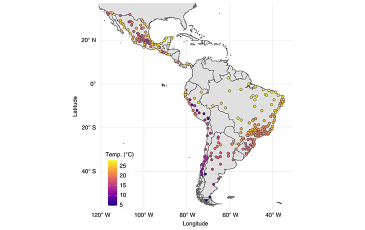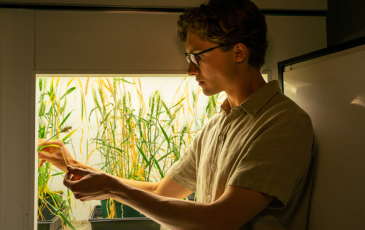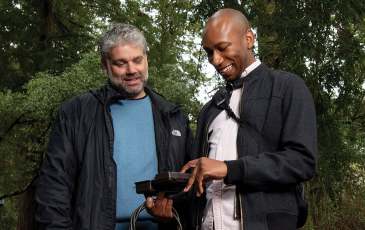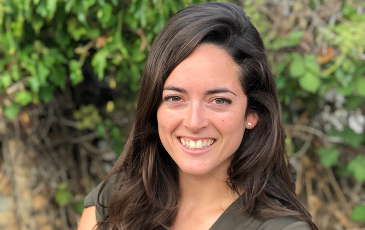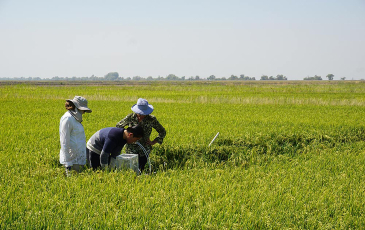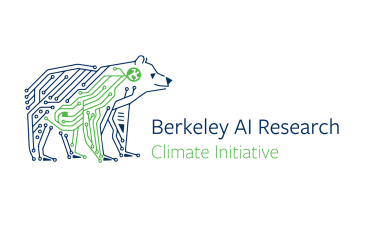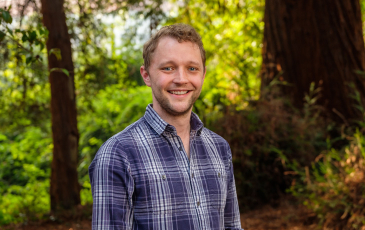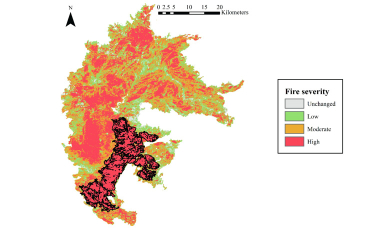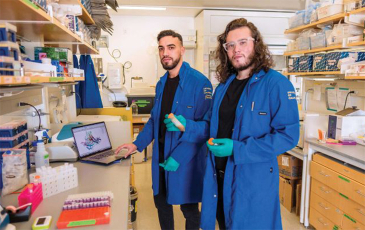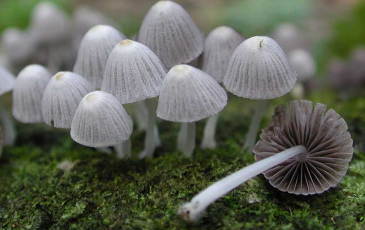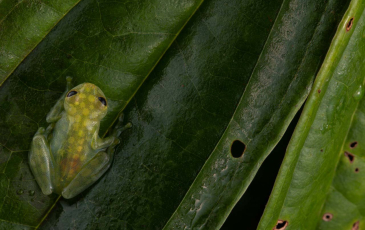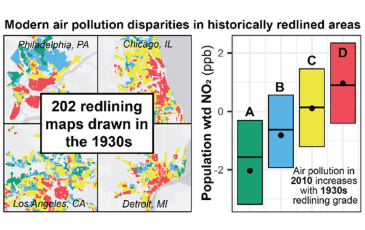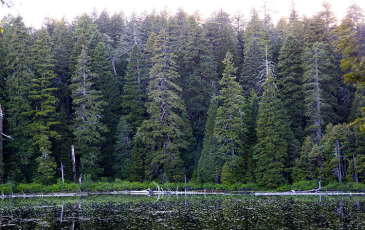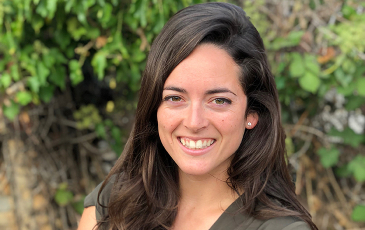ESPM Professor Iryna Dronova co-authored the multidisciplinary study published in Nature Medicine.
What will electrification cost the distribution system?
ARE Professor Meredith Fowlie breaks down new ERG research that examines one potential cost of moving toward an increasingly electrified, clean-energy future.
Can CRISPR help us deal with climate change?
Rausser College researchers lead groundbreaking research on how CRISPR can help plants thrive in a changing climate and sequester carbon in the soil to draw down greenhouse gases and reduce methane emission.
How Kendall Calhoun’s “love” for California led him to Berkeley
Learn more about the PhD student's research into the response and potential recovery of mammals, birds, and other species after extreme climate events.
Challenges and opportunities in future groundwater management in California
Ellen Bruno, an assistant professor of Cooperative Extension in ARE, breaks down California's Sustainable Groundwater Management Act in a recent Q&A with the Berkeley Food Institute.
Rausser College faculty to co-lead new carbon storage efforts at Innovative Genomics Institute
Research by PMB and ESPM faculty will be supported by an $11 million commitment by the Chan Zuckerberg Initiative.
New UC Berkeley initiative uses AI Research to solve climate problems
ESPM Professor Manuela Girotto is part of a new UC Berkeley research initiative that connects experts from AI and climate-related fields.
Ben Williams named 2022 Hellman Fellow
The program supports research by junior faculty members at UC Berkeley and across the UC system.
New study identifies contributing factors to the 2020 Creek Fire
A new study published in the journal Forest Ecology and Management has identified dead biomass and live tree dentistry as major factors in the 2020 Creek Fire.
Deciphering Microbial Mysteries
Rausser College students are helping reshape our understanding of the bacterial world.
More oil and gas wells in redlined neighborhoods
Study shows that historically marginalized communities are exposed to more wells and their accompanying pollution.
For cannabis farms, ecosystem science is scarce
High Country News interviews Phoebe Parker-Shames, a PhD candidate studying the West’s emerging, and rarely researched, industry.
Polynesian Island yields ‘treasure trove’ of fungal biodiversity
Matteo Garbelotto, ESPM faculty member, explores some of the fungal kingdom's "uncharted territory."
New tool visualizes cannabis production in Southern Oregon
Researchers at the Berkeley Cannabis Research Center have created a mapping tool to help guide local land use planning discussions and decisions.
With climate change, Berkeley snow lab’s mission remains critical
Central Sierra Snow Laboratory Manager Andrew Schwartz and Director Robert Rhew, professor in ESPM, talk about the station's important work monitoring California's snowpack.
Two endangered glass frogs discovered near Andean mining sites
ESPM PhD Candidate Becca Brunner says the discovery highlights the region’s “cryptic diversity” and the importance of conservation.
Historical redlining is associated with present-day air pollution disparities in U.S. cities
A new national analysis of air quality data found a strong correlation between historic housing discrimination and air pollution.
How Indigenous burning shaped the Klamath’s forests for a millennia
A new study from ESPM researchers found that decades of logging and fire suppression have left California’s forests prone to drought, infestation, and catastrophic wildfire.
Leaks an Untapped Opportunity for Water Savings
New research from Assistant Professor of Cooperative Extension Ellen Bruno found that reducing leaks is a cost-effective way to save urban water.
New therapy breakthrough changes the shape of treatment for undruggable diseases
Research by NST Professor Daniel Nomura may have applications in treatments for cancer, neurodegenerative diseases, and genetic disorders.


